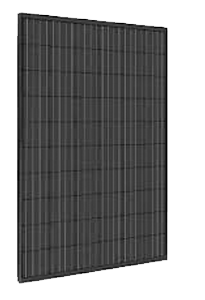As the technology behind solar energy grows more sophisticated, the possibilities about what it can achieve are increasing. Insulated Solar Roof Panels are a popular choice for solar power as they are straightforward to install on most roof shapes and sizes. They work by harnessing the sun’s energy and converting it into electricity. This electricity is then used to heat and power the home or commercial premises. On the other hand, Solar thermal panels capture solar energy that goes directly to generating hot water for the property. However, some types of solar thermal systems can offer additional benefits too. Thermal insulated solar roof panels can add a crucial heat retention layer to the property.
Four Key Questions About Solar Thermal Panels
Solar thermal and insulated solar roof panels can help reduce heating costs when rising fuel bills are top of the UK news agenda. It is worth working out how the initial in-roof solar panels UK cost can be offset against the savings you can achieve on mains electricity. For an idea of the average solar thermal system and roof-integrated solar panels UK cost, speak to an expert at UPS Solar. In the meantime, here are four questions about insulated solar thermal panels.
1. How Do Solar Panels Insulate Your Roof?
The primary way that solar technology can add insulation is by installing in-roof panels. These are not the same as standard photovoltaic solar panels that sit on top of the existing roof. Insulated solar in-roof panels do precisely what their name suggests. They are fitted into the roof, replacing some tiles and lying flat against the adjoining ones. This removes gaps between tiles where draughts can get inside the property. The evacuated tube collectors of solar thermal panels are also designed with vacuum insulation capabilities to reduce heat loss further. Householders living in listed buildings may need planning permission to fit solar thermal panels and insulated in-roof solar panel systems.
2. Does Solar Thermal Power Work in the Winter?
Solar thermal technologies are a highly effective way to produce hot water. The technology has been around for a while – longer than more modern solar PV panels – yet it can be far more efficient, capturing more energy and converting it into heat for water more quickly. The process can still be used to ensure hot water during the winter, although the solar energy output will be lower on dull days than during sunnier periods.

You may need to supplement it with more conventional methods of heating water on especially overcast winter days. However, the solar thermal power produced will still help keep energy bills lower in the long run. It is advisable to check on your solar thermal power in-roof panels during heavy snow. This is because the system’s insulating properties will prevent any heat from escaping to melt away the settled snow. So, you may need to remove it manually to ensure the system is running as efficiently as possible.
3. Can Solar Panels Make a House Cooler?
Conversely, installing solar thermal panels can also help keep a house cool in the summer. The multiple layers of an in-roof solar thermal system promote airflow between each one. While this offers insulation during colder periods, the air can also cool the panel down when temperatures are higher and, subsequently, the roof beneath it. This can make a difference to temperatures inside the house during hotter weather. Not having to have a gas boiler or mains electric heating system switched on so high to ensure hot water for bathing, cooking, cleaning, etc., can also help reduce the overall heat level in the house on a summer’s day.
4. Which is more efficient: solar thermal or PV?
PV technology converts solar power into usable electricity, whereas solar thermal systems provide hot water. Solar thermal panels installed on a roof comprise thermal flat plates or evacuated tubes collectors that use the sun’s energy to produce hot water. This is then passed through pipes and stored in the property’s hot water cylinder for use when required. Solar temperatures hitting the collectors can reach up to 90 degrees C, making the system highly effective and quick. Solar thermal panels’ price differences will depend on the size and type of solar thermal system.
Photovoltaic panels are also effective in converting solar energy into electricity. However, this is used or stored for general use, including heating and power. You can also use electricity from PV panels to charge an electric vehicle. Installation is also easier than solar thermal panels. However, the initial price of the system can be higher. Both systems could make the householder eligible for renewable heat incentive (RHI) payment schemes. In terms of which is more efficient, both offer advantages. The final choice of system will depend entirely on what you plan to use solar energy for – general heating, powering and charging, or simply hot water.
When considering upgrading your home’s energy system, solar panel roofing is a compelling choice. Solar panels on the roof have become increasingly popular due to their ability to generate electricity directly from sunlight. This clean energy source reduces dependency on traditional power grids and can lower utility bills over time. For a more integrated solution, in roof solar panels offer a sleek alternative. Unlike traditional panels that are mounted on top of your existing roof, these systems are embedded within the roof structure itself. This installation method not only enhances the aesthetics of your home but also provides better protection against weather elements and improves overall energy efficiency.
Another significant advantage of modern roofing solutions is the use of insulated roof panels. These panels not only contribute to energy generation but also offer superior thermal insulation. By combining the benefits of insulated roof tiles with solar technology, homeowners can enjoy enhanced comfort and reduced heating costs. Additionally, pv roof panels provide an effective way to convert sunlight into usable electricity while ensuring that your roof remains energy-efficient throughout the year. As winter approaches, it’s worth noting how solar panels in winter perform. Although solar energy production may decrease on cloudy days, install solar roof panels to maximise your home’s energy efficiency regardless of the season. This dual-function approach of solar panel roofing and insulation makes it easier to maintain a comfortable indoor environment while benefiting from renewable energy.

